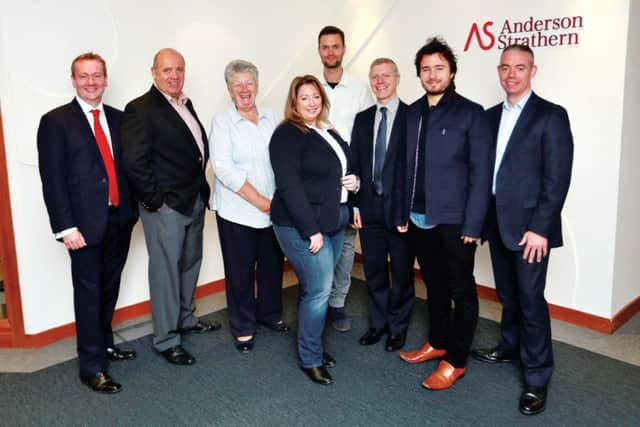How can food and drink and hospitality continue to grow?


ASKILLED workforce is crucial to the future success of the food and drink sector. A group of industry experts met to discuss how to deliver this, at a breakfast seminar hosted by legal firm Anderson Strathern. The discussion was led by Paul Brown, head of the firm’s food and drink sector group and Shirley Spear, chair of the Scottish Food Commission. Among those in attendance was Josh Littlejohn, founder of Social Bite, the sandwich shop chain and social enterprise which supports a range of charities and employs a proportion of its staff from homeless backgrounds.
Paul Brown, partner, Anderson Strathern (PB): What are the particular challenges facing the food and drink and hospitality sector in attracting sufficient skilled people?
Advertisement
Hide AdAdvertisement
Hide AdRobert Allan, director of human resources, Apex Hotels (RA): It’s about getting a pipeline of young people coming into our industry from schools.
Shirley Spear, founder of the Three Chimneys, Skye and chair, Scottish Food Commission (SS): We need to change attitudes. It is still seen as being in service. Even though it is a skilled and fun profession, it’s not seen like that.
Society has a particular view of the food and drink and hospitality sector; long hours, weekend working and no social life.
We must move on from that. Life is now 24/7, it’s not just the hospitality business.
Marc Crothall, chief executive, Scottish Tourism Alliance (MC): Our industry is associated with failure; the view seems to be that if you fail your exams, you can always get into hospitality.
I heard that view put forward very recently in a radio phone-in in Scotland. Society has built a stigma around our industry.
Tom Chisholm, the Buck & Birch, which specialises in creating food and drink from locally sourced, and often foraged, ingredients (TC): I worked as a waiter in Brown’s in Edinburgh and you were incentivised to do well and the staff were very good. Yet the customers still have that attitude, “What are you going to do after this?”.
SS: Exactly. Diners ask our staff at the Three Chimneys, “Why are you working here when you have a degree?”.
Advertisement
Hide AdAdvertisement
Hide AdService is a two-way street; if you take an interest in the person serving you, you will get better service. Yet customers are so snooty when an employee makes even the slightest fragment of an error.
Front of house staff are under the spotlight all the time. Yet good training in this area is fantastic for building confidence.
RA: One of the four skills priorities in the sector is raising the attractiveness of the profession. That’s about bridging the massive gap in understanding in schools about our profession.
At Apex, we are working with Craigroyston High School in Edinburgh on a pre-apprenticeship programme, which brings in kids who might have left school after fourth year with poor prospects and are often not doing anything. When they come to us, we see their confidence grow and they can also start to earn some money.
MC: It’s challenging to attract young people when you are up against the digital sector, oil and gas and so on.
Leadership is really important in terms of getting people into the profession and allowing them to progress quickly. It’s about getting back to that primary school audience and making them aware of the opportunities.
RA: It’s an industry where you can come in at the bottom and get to the very top.
Most of our general managers started at the bottom and now run multi-million businesses.
Advertisement
Hide AdAdvertisement
Hide AdMC: I completely agree. I dropped out of school, got a job peeling potatoes and then got a break – and I have had a career which has taken me around the world.
SS: You have to start at the year dot in primary school with stories of food and where it comes from. You have to inspire.
But we have a huge issue with the shortage of home economics teachers and the inconsistency in the teaching of home economics; some school kitchens are really well-used, some are almost abandoned.
There is also a lack of confidence in teaching cookery. There is a whole gamut of stuff that we need to sort out.
I have a very enthusiastic head chef and general manager at the Three Chimneys who have been into schools in the Highlands talking about working in the food and drink industry. The next meeting of the Scottish Food Commission is devoted to education, which is very important.
PB: How can we persuade school children to eat more healthily?
TC: You have to get them early and make it fun. My mum runs a nursery and we take the children foraging for food and then cook with it. They love it – but then we often seem to lose them by their teenage years.
SS: There are pockets of amazing success in our schools, but people don’t know about them.
Advertisement
Hide Ad